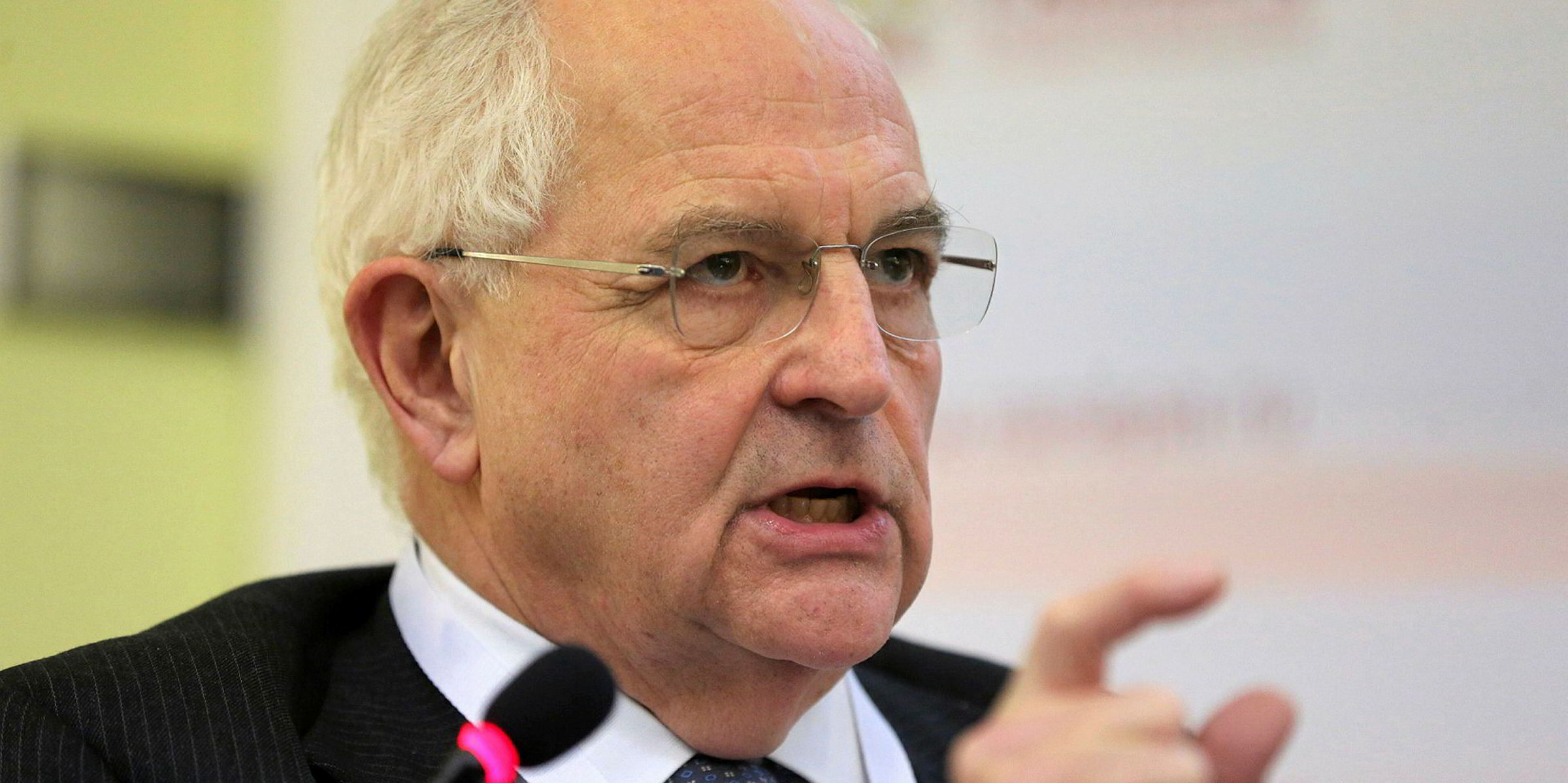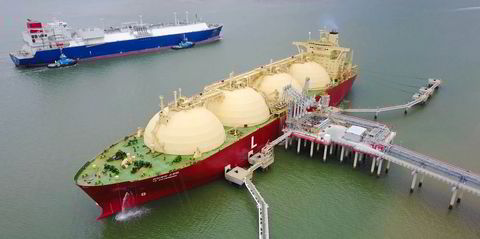There was a muted celebration on Monday for World Oceans Day, with maritime minds rather more fixated on Covid-19.
It is not surprising that the pandemic, even while easing up in Asia and southern Europe, has dwarfed all other issues as it has wreaked havoc on trade and shipping.
Estimates from the World Bank this week show we are heading for the worst recession since World War II. The global economy is expected to shrink by 5% in 2020 and the US economy by more than 6%.

The recent collapse in oil prices forced BP to announce plans to axe 10,000 jobs, while other oil services companies have had to rely on state bailouts.
Already we have seen a raft of Singapore trading houses hit the financial buffers.
Plunging profits
Net income at the world’s largest independent oil trader, Vitol, plunged by 70% in the first quarter, according to figures seen by the Financial Times.
IMO secretary general Kitack Lim put on a brave face for the annual sea celebration. He said this was to have been a “super year for the oceans”, with a raft of new treaties to protect international waters.
Lim celebrated the “blue economy” provided by shipping and highlighted the United Nations theme of “Innovation for a Sustainable Ocean”.
The day was also marked by corporate announcements, including one from Norway’s Equinor (formerly Statoil) promising to halve emissions from its maritime activity by 2030 from a 2005 baseline.
The state-owned oil business said that as a key producer and user of maritime fuel, it was determined to set an example by decarbonising shipping, starting with its own fleet.
Equinor is already working with the Wilhelmsen Group to develop hydrogen-powered vessels, but concern about the speed of change abounds in all industries.
Class society ABS was one of the latest to warn that shipping could fail to meet its target of halving its overall CO2 emissions by 2050.
Accelerating plans for a low-carbon future

The IMO had aimed to agree on a pathway for its planned 2023 decarbonisation rules this year, but Lim admitted that the regulatory process had been delayed by the pandemic, with face-to-face meetings shelved since early March.
Yet many experts have described coronavirus as a dress rehearsal for the deeper impact of runaway climate change.
Oil companies admit that the drop in demand for their products due to Covid-19 may be more permanent. There are signs that this is making those companies accelerate their plans for a low-carbon future.
Italian oil supermajor ENI announced last week that it was splitting itself into two businesses: one for carbon, one not.
Total of France has unveiled plans to buy a controlling stake in a $3.8bn UK North Sea windfarm.
When BP announced its job cuts, it said it would emerge as a “leaner, faster-moving and lower-carbon company”. There has been no word yet on what it plans to do about “greening” its extensive shipping operations, although it is taking delivery of six LNG carriers that will be fuelled by boil-off gas.
My colleague Lucy Hine estimated that almost half of the total 35 VLGCs on order will be able to use gas for their own propulsion.
Yet the picture across the Atlantic is not so green, with the pro-oil government of Donald Trump exiting the Paris climate agreement and ExxonMobil declaring that the overall outlook is “business as usual” for the oil industry.
Structural change
Many people also question whether the European oil companies can match their rhetoric with action.
Spending on oil and gas exploration and development — even after Covid-19 cuts — vastly outweighs spending on renewables. But some European executives have promised to concentrate budget cuts on fossil fuels.
Coronavirus could yet wreck Lim’s short-term timetable, but might it give birth to longer-term, deep-rooted structural change? The world’s oceans need that.






